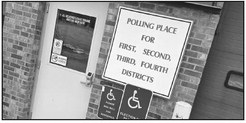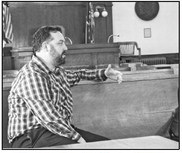Wisconsin needs to roll back restrictions on retirees who want to work


It is time for Wisconsin to roll back restrictions on teachers, police officers and other government employees wishing to go back to work in their professions after retirement.
Prior to July 2, 2013, public employees could retire and then decide to come back to work after retirement. Those workers could receive both their pay earned for the work they were doing and their pension from the Wisconsin Retirement System. This was a common practice at the state, school district, county and municipal levels. Not only did these government employers benefit from the knowledge and experience of veteran staff, but their budgets also benefitted because they did not have to pay into the state retirement system for these employees.
The longstanding practice didn’t sit well with former Gov. Scott Walker who mischaracterized these employees as “double dipping” since they were getting paid for working at the same time as getting state retirement payments. At the time, Wisconsin was still clawing its way out of a nationwide recession and the number of applicants for teaching and other government positions remained high. The statewide unemployment rates at the time hovered around the 7% mark.
By comparison, the current statewide unemployment rate is around 2.7% with schools and other government employers facing stiff competition with the private sector for any position. Last fall more than 2,000 teaching positions across the state were unfilled at the start of the school year.
The teacher and other government employee labor shortage has forced up starting wages and benefits packages putting increasing pressure on local budgets and taxpayers.
Under existing rules if a current retired teacher decides to come back to the classroom, they must wait 75 days to do so and are limited to working just 440 hours per calendar year in a public school teaching position while also receiving their retirement benefits. If they work more than that amount, their retirement benefits are put on hold. It must be noted that there are no restrictions on retired teachers or other government employees from taking private sector jobs while also receiving their state retirement payments. The current rules rob schools and other local governments of the ability of tapping into these highly-qualified workers to fill positions.
It is time for Wisconsin legislators to roll back the Walker-era retirement rules and recognize that during a period of demographically- driven labor shortages it makes no sense to keep willing workers sidelined. Public employees are able to retire as early as age 50 for law enforcement, and age 55 for others, this is more than a decade earlier than most private sector positions. If these professionals choose to come back to their positions, the rules placed by a past administration should not stand in the way of them getting paid what they have earned.
Wisconsin’s schools and local governments need all hands on deck to continue to provide quality education and essential services at a price that won’t break taxpayers’ banks. It is time to roll back the Walker-era retirement rule changes and keep Wisconsin working.




